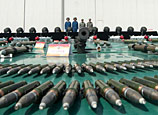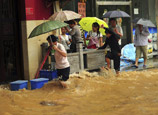
Emerging diseases may occur at any time and location, resulting in potential huge health, economic and social impacts if not managed well. Like other countries, China is still in the process of continually improving and maintaining its national and local systems and abilities to manage any future public health emergencies, including emergency preparedness planning, early detection, risk assessment and rapid response. Meanwhile, China has also put its effort to play an increasing role in supporting and contributing regional and global public health security.
Better early warning systems will lead to more efficient and effective disease control, and reduce impact on the people. China, and all countries, must continuously assess achievements and gaps, and further strengthen capacity for surveillance and response.
Improving early detection also depends on increasing access to health care among patients who live in remote areas or who cannot afford it. For China this is especially the situation in western provinces.
The government's commitment to achieve universal health coverage – a major public health priority for WHO – can make a key difference.
PD Online: SARS contributed to the generation of the new International Health Regulation. What roles has the new IHR played in the past decade?
Chan: IHR compliance has resulted in better international communication and cooperation to address the shared threat of epidemic diseases, particularly those of international concern.
Focusing on the subset of IHR core capacities will also provide a foundation for an all-hazards approach in addressing public health emergencies regardless of cause.
IHR assists countries, individually and collectively, to better focus and improve their efforts at surveillance, detection, diagnosis, and response; and also to freely share information, thus joining their neighbors and the world in meeting shared challenges.
PD Online: This year marks your 35th years’ service in the field of public health. Can you briefly summarize the lessons you learnt at work? What are your expectations for the development of public health?
Chan: Dedication, a strong sense of responsibility, transparency and team work are critical success factors.
Political leaders across the globe recognize that healthy and educated human capital are essential for sustainable development and poverty reduction. Political commitment coupled with the right health policies and investment can unleash the power of health promotion and disease prevention to keep people healthy. Health is wealth.
 |

















 Heavy rain affects traffic in S China
Heavy rain affects traffic in S China


![]()
